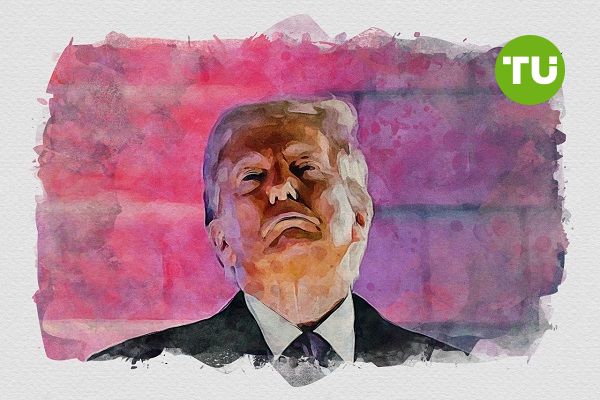Trump eases tension over July 9 tariff deadline
 Markets rise ahead of key US-China trade agreements regenerate copy
Markets rise ahead of key US-China trade agreements regenerate copy
After Canada canceled its digital services tax for U.S. tech companies on Sunday, Canada's Finance Minister announced that Prime Minister Mark Carney and Donald Trump agreed to resume negotiations to reach a deal by July 21.
Earlier, Trump twice declared on Friday and once on Sunday that he was suspending trade talks with Canada and threatened to impose new tariffs on the country's goods within the next week.
However, Trump stated that he does not see the need to extend the July 9 deadline, which was given to trade partners for reaching agreements with the U.S.
"We can do whatever we want," he said at a press conference — "we can extend it, we can make it shorter," adding that he would prefer to make it shorter.
This easing of the July 9 date came after Finance Minister Scott Bessent announced that U.S. tariffs on Chinese imports would start at 30%, while China's tariffs on U.S. imports would be set at 10%.
Major tariff deals are expected to be completed by September 1.
Additionally, Trade Minister Howard Lutnick told Bloomberg that China confirmed it will supply rare earth metals to the U.S. within the trade framework, and the U.S. will respond by lifting its countermeasures.
This agreement between the U.S. and China marks a significant step toward stabilizing trade relations, which had turned hostile shortly after the initial ceasefire in May.
Furthermore, Bessent stated last week that the U.S. might finalize the remaining key trade negotiations by Labor Day, September 1, which also contributed to easing tariff tensions in the markets.
As a result, major indices S&P 500 and NASDAQ Composite increased by 0.22%, and Dow Jones by 0.39% at the time of writing.

Key metrics for the largest cryptocurrencies by market cap on June 30. Source: CoinMarketCap
Cryptocurrency markets showed an overall growth of over 0.5% with trading volume increasing by 44%.
As we wrote, Nikkei 225 index price closes strong at 40,487 as bullish trend extends into July













































































































































